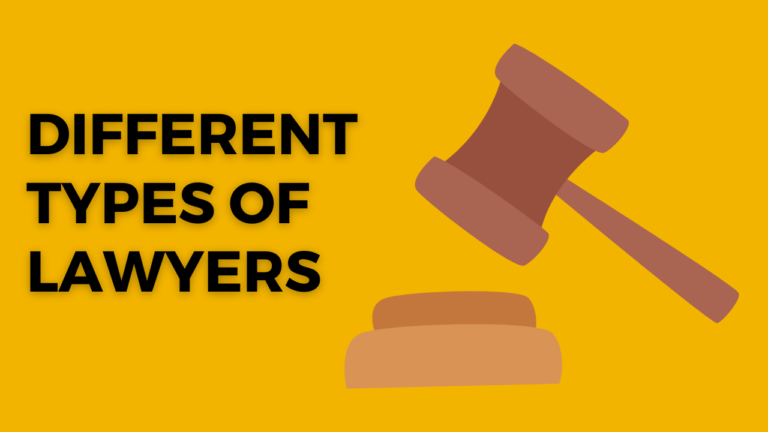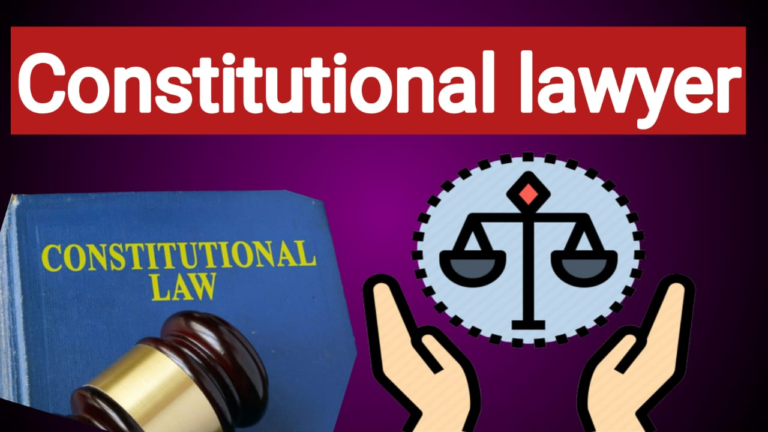PERSONAL INJURY LAWYR

A personal injury lawyer is a legal professional who specializes in providing legal representation to individuals who have been injured due to the negligence or wrongdoing of another party. Personal injury cases can arise from various situations, including car accidents, slip and falls, medical malpractice, workplace accidents, and product liability.
The primary role of a personal injury lawyer is to advocate for the rights of their clients and help them seek compensation for their injuries and losses. Here are some of the key responsibilities of a personal injury lawyer:
Legal Consultation: Personal injury lawyers offer initial consultations to evaluate the merits of a potential case. During this consultation, they will listen to the client’s account of the incident, assess the evidence, and provide legal advice on the available options.
Investigation: Once a personal injury lawyer takes on a case, they will conduct a thorough investigation to gather evidence. This may involve reviewing medical records, accident reports, witness statements, and other relevant documents.
Legal Representation: A personal injury lawyer represents their clients throughout the legal process. They handle all communication with insurance companies, opposing parties, and other involved parties. They also negotiate settlements on behalf of their clients and, if necessary, litigate the case in court.
Case Preparation: Personal injury lawyers prepare the case by gathering evidence, interviewing witnesses, consulting with experts, and building a strong legal strategy. They aim to establish the liability of the responsible party and demonstrate the extent of their client’s injuries and damages.
Settlement Negotiation: Many personal injury cases are resolved through negotiation and settlement. Lawyers negotiate with insurance companies or opposing counsel to secure a fair settlement that compensates their clients for medical expenses, lost wages, pain and suffering, and other damages.
Court Representation: If a settlement cannot be reached, a personal injury lawyer will represent their client in court. They present the case to a judge and jury, argue on behalf of their client, and strive to secure a favorable verdict and award.
Legal Advice and Support: Throughout the legal process, personal injury lawyers provide ongoing advice and support to their clients. They explain the legal procedures, answer questions, and keep their clients informed about the progress of their case.
If you have been injured in an accident or believe you have a personal injury claim, it is advisable to consult with a qualified personal injury lawyer. They can assess the specifics of your situation and guide you through the legal process to help protect your rights and pursue fair compensation.
Specialization: Personal injury law is a specialized area of law that focuses on cases involving physical or psychological injuries. Personal injury lawyers typically concentrate their practice on this specific area to develop expertise and stay updated with the relevant laws and regulations.
Types of Cases: Personal injury lawyers handle a wide range of cases, including but not limited to:
Motor vehicle accidents: These include car accidents, truck accidents, motorcycle accidents, and pedestrian accidents.
Premises liability: Cases involving injuries that occur on someone else’s property, such as slip and falls, inadequate security, or dog bites.
Medical malpractice: Claims against healthcare professionals for negligence or substandard treatment that result in harm.
Product liability: Cases involving injuries caused by defective or unsafe products.
Workplace accidents: Injuries that occur in the workplace, such as construction accidents or exposure to hazardous substances.
Wrongful death: Cases where a person’s death is caused by the negligence or misconduct of another party.
Contingency Fee Basis: Many personal injury lawyers work on a contingency fee basis, which means they only receive payment if they successfully recover compensation for their clients. In such cases, the lawyer’s fee is typically a percentage of the final settlement or court award. This arrangement allows individuals who may not have the financial means to afford upfront legal fees to still pursue their personal injury claims.
Insurance Negotiations: Personal injury lawyers are experienced in dealing with insurance companies. They understand the tactics used by insurers to minimize payouts and work to protect the rights of their clients. Having a lawyer on your side can level the playing field during negotiations and help ensure you receive fair compensation.
Alternative Dispute Resolution: While personal injury cases often involve negotiations and litigation, personal injury lawyers may also explore alternative dispute resolution methods, such as mediation or arbitration. These approaches can provide a quicker and more cost-effective resolution compared to going to court.
Statute of Limitations: Personal injury claims are subject to a statute of limitations, which is a specific time limit within which a lawsuit must be filed. It’s important to consult with a personal injury lawyer as soon as possible after an accident to ensure compliance with the applicable statute of limitations.
Remember, personal injury laws and regulations can vary by jurisdiction, so it’s crucial to consult with a local personal injury lawyer who can provide specific guidance based on the laws in your area. They will assess your case, explain your rights, and help you navigate the legal process to seek compensation for your injuries and losses.






